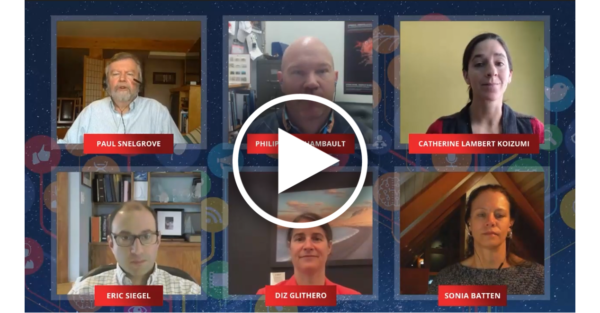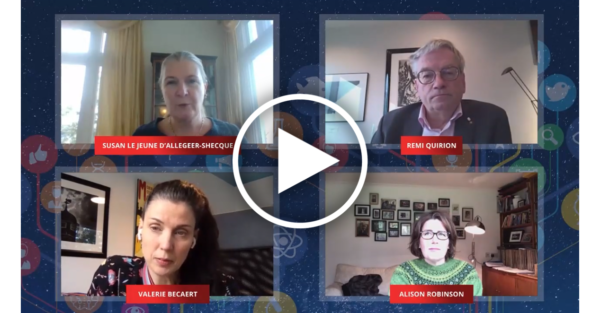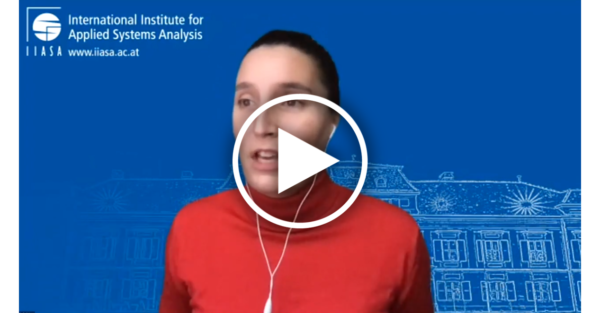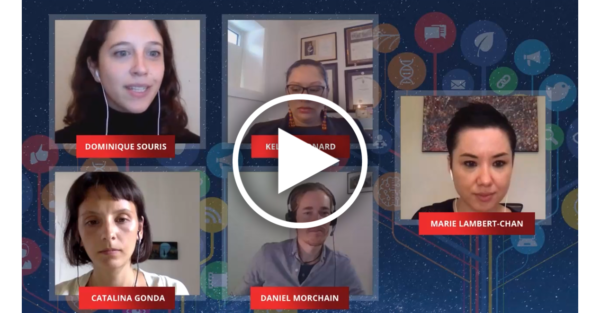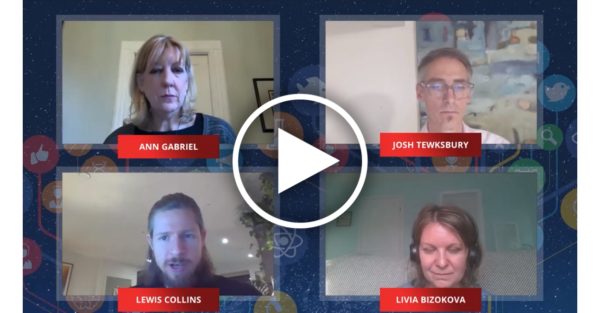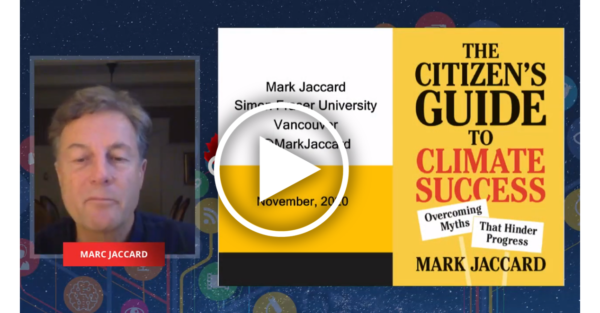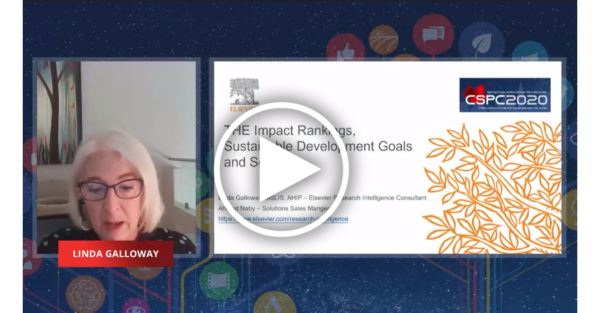The following are the CSPC 2020 panels that cover
Climate Change and Sustainable Development
Conference Day 4 – November 20th 2020
Organized by: Fisheries and Oceans Canada
Panelists:
Paul Snelgrove – Professor of Ocean Sciences and Biology, Memorial University of Newfoundland
Catherine Lambert Koizumi – Executive Director, Mi’gmaq Maliseet Aboriginal Fisheries Management Association (MMAFMA)
Sonia Batten – Executive Secretary, North Pacific Marine Science Organization (PICES)
Eric Siegel – Executive in Residence, Ocean Startup Project
Liza Glithero – National Coordinator, Canadian Ocean Literacy Coalition
Philippe Archambault – ArcticNet Co-Chair and Professor, Université du Laval
Takeaways:
- Canadian researchers and scientists have been working on capacity-building and knowledge mobilization related to UN Sustainable Development Goal Number 14: Conserve and sustainably use the oceans, seas and marine resources.
- When tackling ocean management and conservation, scientists and researchers should consult with Indigenous peoples, and incorporate different knowledge systems and values.
- A shift has been created when addressing ocean sustainability – the old model states that successful companies benefit the ocean through philanthropy or corporate social responsibility. The new model encourages ocean companies to work towards and recognize that “Doing good for the ocean can also be good for the company”.
- Ocean literacy is defined as an understanding of the ocean’s influence on the individual and the individual’s influence on the ocean—fundamentally a relationship between you and the ocean. This conversation should include scientists, local place-based knowledge holders, Indigenous knowledge systems, industry members, educators and communities.
- An efficient way to address international challenges is to use existing infrastructure while also bringing in new partners and expert groups. When working internationally with different countries and partners, including Canada, identify a common need or issue, driven from the bottom-up approach.
Actions:
- Opportunities include funding, programs and legislation, capacity building, research opportunities, sharing indigenous knowledge and collaboration.
- Scientists and researchers need to consult Indigenous knowledge and issues regarding ocean management and conservation. This “two eyed seeing” includes both complementary scientific and Indigenous perspectives.
- There should be a greater awareness of Indigenous rights regarding ocean-related activities, such as sustainable fishing and fishing rights. This requires further collaboration and improved dialogue and communication between Indigenous, industry and local groups.
- Support efforts by ocean startups to integrate sustainability, starting from the inspiration (ideation, lab-to-market), to initiation stage (funding, mentorship) and the investment stage (creative destruction labs, impact investing).
- Continue efforts to improve ocean literacy understanding in Canada, including gaps in knowledge, knowledge mobilization and establishing a national conversation with all stakeholders and communities. Work is progressing on a Canadian Ocean Literacy Strateg
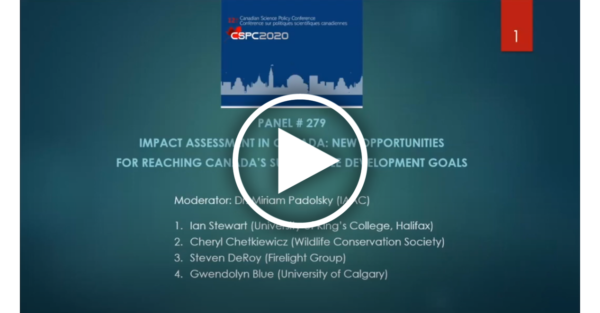 Conference Day 2 – November 18th 2020
Conference Day 2 – November 18th 2020
Organized by: University of King’s College
Panelists:
Miriam Padolsky – Director of Science Policy, Impact Assessment Agency of Canada
Gwendolyn Blue – Associate Professor, Dept. of Geography, University of Calgary
Cheryl Chetkiewicz – Conservation Scientist, Wildlife Conservation Society
Steve DeRoy – Director, Firelight Group
Ian Stewart – Assistant Professor, History of Science and Technology Program, University of King’s College
Context: Realizing Canada’s sustainable development goals depends in part on our abilities to assess the impacts of development in ways that are responsive to societal values and to the diversity of knowledge sources inherent to all complex decisions in a participatory democracy. Academic and practitioner insights informed by the social sciences and humanities, as well as Indigenous Knowledge, have an expanding role to play in thinking through the challenges of such diversity. The panel offered a range of perspectives on past lessons and future opportunities for IAs in Canada.
Takeaways:
- Impact Assessment (IA) is a planning tool used to analyze the positive and negative effects of a proposed change on a socio-ecological system.
- Best practice acknowledges the interdependence of human well-being and ecological integrity.
- Community-led, and especially Indigenous-led, studies incorporate traditional knowledge and land use, contribute to a rights-based assessment, and build local capacity.
- Justice is fundamental to IA since it is a public consideration of right and wrong, distribution, rights of use, procedure, and representation.
- Current IA practices allow projects to limit scope to exclude regional engagement and cumulative effects.
- Regional frameworks acknowledge the need for a just and equitable process but are underused and underpowered.
Actions:
- Support efforts to build IA capability and capacity in remote and Indigenous communities.
- Address distributive, procedural, and representational justice at every stage of IA.
- Incorporate Indigenous knowledge, values, and rights during planning to ensure assessment is correctly scoped to include proper attention to important areas and outcomes.
Conference Day 2– November 17th 2020
Organized by: UKRI
Panelists:
Susan Le Jeune d’Allegeer-shecque – High Commissioner , The British High Commission in Ottawa
Rémi Quirion – Chief Scientist of Quebec, Government of Quebec
Valérie Bécært – Director of Research, Element AI
Alison Robinson – Deputy Executive Chair and Director of Corporate Affairs, National Environment Research Council (NERC)
Context: The UK and Canada are aligned and committed to delivering a clean and green future. Further motivated by next year’s COP26, which will be hosted in Scotland under the presidency of the UK Government in November 2021, both countries are striving to address major challenges posed by climate change. This session brought together distinguished experts from policy, industry and research to reflect on why on the role of green recovery will be so important for pandemic recovery and the future of society in an ever-changing world.
Takeaways:
- COVID-19 and climate change are two complex problems facing every country in the world. As we discover the best methods to control and recover from the pandemic, we need to also address the larger issue facing us – climate change.
- Science has become more prominent than ever and scientists are all over our media. At the same time, scientists are facing unprecedented challenges and dismissals of their findings.
- The biggest challenges we face as we tackle climate change is the exhaustion of people, lack of collaboration, changing human behaviour, translating the lessons learned from the pandemic into climate action, and having a long-term vision towards climate action.
- Young people have had and will continue to have a crucial role in the fight against climate change.
Actions:
- Improve digital connectivity, share local experiences of populations directly facing the effects of climate change and highlight these on the international stage, and reduce communities’ reliance on heavily polluting energy generation.
- We must make science more inclusive through citizen science, building trust between organizations, thinking globally, incorporating lived experiences, and bringing together different disciplines.
- Green finance is one of the most important levers for action. Developed countries must invest in projects in the developing world to help with climate change and vaccine distribution.
- Focus on making climate change a bipartisan issue and increasing consumer pressure on businesses.
- Increase collaboration between governments, the private sector, researchers, and academia while ensuring that COVID-19 and climate action are a global effort. To achieve this it will be necessary to: continue building trust; share a common ‘working’ cross-disciplinary language; adopt flexible approaches; remove unintended sectoral and inter-sectoral barriers, and enable ideas to flourish.
- Continue to use and develop artificial intelligence for climate change solutions that are focused on the demand side.
Conference Day 5 – November 20th 2020
Organized by: International Institute for Applied Systems Analysis
Panelists:
Nicole Arbour – External Relations Manager, IIASA
Moinca Gattinger – Director, Institute for Science, Society and Policy and Professor, University of Ottawa
Brendan Frank – Senior Research Associate, Institute for Science Society and Policy, University of Ottawa
Piotr Magnuszewki – Program Leader, Centre for Systems Solutions
Tim Giger – Sustainability Expert, Centre for Systems Solutions (CRS)
 Conference Day 1 – November 16th 2020
Conference Day 1 – November 16th 2020
Organized by: University of Waterloo
Panelists:
Joe Friesen – Postsecondary Education Reporter, Globe and Mail
Randy Herrmann – Director, Engineering Access Program (ENGAP)
Wendy Vasquez – President, Canadian Federation of Engineering Students (CFES)
Mary Wells – Dean of Engineering, University of Waterloo
Jason Blackstock – Founder & CEO, How To Change The World
Leonie van Drooge – Senior Researcher, Dutch Rathenau Institute
Context: Scientists are taught to develop a knowledge and understanding of the physical universe. In contrast, engineers apply scientific and technical knowledge to meet societal needs. One challenge being addressed by Canadian engineering educators and faculty deans is ways we can rapidly and significantly evolve our engineering education systems so that our engineering students and faculty tackle complex and societally important grand challenges such as the United Nation Sustainable Development Goals (SDGs). This will create engineering graduates who are transdisciplinary thinkers who will become future leaders and help identify the most important societal problems to be solved but also contribute to Canadian public policy.
Takeaways:
- An October, 2020 survey by Engineering Deans Canada of 3,000 Canadian engineering students revealed their strong desire to participate within an interdisciplinary team on socially relevant topics, such as the UN’s SDGs.
- The survey also found that over a third of engineering students were not aware of socially relevant topics, and that the awareness of these topics was derived from many different sources outside the engineering curriculum.
- Canadian engineers need to be cognizant of the interactions between themselves and their projects that intersect with many different cultural environments, such as Indigenous peoples and their lands.
- Students currently have limited opportunities for experiential learning due to the strict, course-based engineering curriculum.
- Having engineers capable of addressing broader interdisciplinary and socially relevant challenges is highly relevant among government stakeholders and funding agencies globally.
Actions:
- Universities have begun incorporating more experiential learning opportunities within the engineering curriculum to give students more opportunities to learn and contribute to socially relevant topics.
- The engineering curriculum is being challenged to include broader topics within the curriculum, while re-evaluating the accreditation process to meet the demands of society for socially aware and interdisciplinary engineers.
- The relationship between Indigenous peoples and engineers needs to be established well in advance before the start of a project, which demands that ethical practices be discussed within the engineering curriculum, and not only learned upon arrival to the site.
- Transdisciplinary opportunities need to be incentivized by the universities (e.g., the creation of micro-credentials), or outside sources such as funding agencies (e.g., providing more variety within internships and co-op placements that support experiential learning within socially relevant topics).
- Incentivizing continuing education for graduates and greater incorporation of social topics within the curriculum are crucial to engaging student awareness and ownership of grand challenges throughout their engineering careers.
Conference Day 3 – November 18th 2020
Organized by: International Development Research Centre; Environment and Climate Change Canada
Panelists:
Marie Lambert-Chan – Editor-in-Chief, Québec Science
Catalina Gonda – Climate Policy Researcher, Fundación Ambiente y Recursos Naturales (FARN)
Ramatoulaye Diouf Diallo – National Gender Focal Point, Ministry of Environment and Sustainable Development of Senegal
Daniel Morchain – Policy Advisor, International Institute for Sustainable Development
Kelsey Leonard – Assistant Professor, Faculty of Environment, University of Waterloo
Dominique Souris – Executive Director, Youth Climate Lab
Martine Dubuc – AsDM, Environment and Climate Change Canada
Context: The next generations are at risk of life-long suffering resulting from climate change. While there is some evidence that the COVID-19 crisis resulted in temporary reductions in pollution, the long-term threat of a changing climate remains – particularly for vulnerable populations. This international panel brought together young influencers from North America, Africa, and Latin America to discuss climate change action and offer audacious solutions grounded in their context.
Takeaways:
- Addressing climate change requires greater inclusivity in science, policy, and discourse, involving close partnerships between communities, Indigenous leaders, citizen science, an engaged public, and all levels of government.
- Climate justice remains elusive, with marginalized populations not well heard. Youth voices, for example, are frequently told “they are the solution” but they’re rarely at the table for high-level decisions. Token input is too common, and it can be hard for marginalized communities to gain genuine representation.
- Climate science is increasingly valued and accepted by the public and decision-makers, but this is clearly not enough. Lived experiences matter, e.g., farmers, rural populations, and indigenous groups all have valuable knowledge that does not neatly fit into the established realm of peer-reviewed, ‘western’ science that ostensibly informs policy and efforts by the Intergovernmental Panel on Climate Change and United Nations Framework Convention on Climate Change.
- There is a false dichotomy between the environment and economy that needs to be overcome, where policy (and economic) alternatives are clear and available to people. This is difficult because it often needs to overcome misunderstandings, regional interests, or on the global stage, national self-interests.
- Policies and initiatives that are genuinely bottom-up are an important part of the solution, as they tend to harness a great deal of speed, ownership, and energy, with less risk-aversion than top-down (e.g., government) initiatives. Government has a clear role, but it also needs to listen and to effectively capture, enable, and extend community-based initiatives that can spark change.
- Assumptions and priorities of existing development models need to be revisited and challenged to ensure just and sustainable pathways to development.
Actions:
- Policy spaces need to expand beyond privileged groups to better represent the population at large, including underrepresented groups and intergenerational voices.
- Youth can help build the social licence that is needed for difficult and sometimes unpopular policies such as carbon pricing. Governments need to build the enabling conditions for policies that promote intergenerational equity.
- Partnerships need to be diverse and inclusive of traditional knowledge, art, humanities, and science, with a value-based understanding of the long-term goal (e.g., net-zero by 2050), and concrete steps that empower people and break through the inertia of inaction.
- Broaden our definition of research to include ‘emotional knowledge’, while acknowledging the sensitivities around indigenous knowledge and data. This worldview needs to be incorporated in climate change assessments and policies, while respecting that some traditional knowledge is personal and sacred. Conventional peer-review and open data policies need to be flexible to accommodate this.
Conference Day 3 – November 19th 2020
Organized by: Elsevier
Panelists:
Ann Gabriel – Senior Vice President, Global Strategic Networks, Elsevier
Josh Tewksbury – US Global Hub Director, University of Colorado, Future Earth
Lewis Collins – Editor-in-Chief, One Earth
Livia Bizikova – Lead, Monitoring and Governance, International Institute for Sustainable Development (IISD)
Context: The moderator engaged the panel through the presentation of bibliometric material on research studies related to the 2015 UN Sustainable Development Goals (SDGs) in Canada and globally, as measured by academic publications. The role of scholarly output and the persistent gap between science and policy were discussed in light of the challenge to achieve the UN’s 2030 sustainability agenda.
Takeaways:
- There is a lot of progress by academia and NGOs to address the SDGs, but there are persistent challenges around the availability and reliability of data. Initiatives like the Group on Earth Observations (GEO) and GEO’s Biodiversity Observation Network (GEO BON) are promising in this light.
- Agencies like Statistics Canada give high-level SDG indicators, but it is hard to break these down into the primary data, making it difficult to track national/international progress or to conduct research on SDG pathways. Data from sub-national entities (e.g., communities, NGOs) are often difficult to capture and not included in the Statistics Canada high-level indicators.
- GEO BON is moving its international secretariat to Montreal in 2021 and together with organizations like Future Earth and the Canadian Space Agency, there may be opportunities to develop/accelerate national monitoring and data management efforts in this area.
- There are many places where sustainability research and science in Canada feed into the SDGs, but the science is not necessarily linked to the policies that are in place (e.g., the Federal Sustainable Development Strategy; the Poverty Reduction Strategy; the PanCanadian Framework for Clean Growth and Climate Change).
- Despite the lack of a nationally-coordinated research strategy on the SDGs, Canada is performing exceptionally well in research to advance certain SDGs (e.g., research strengths in SDGs 2, 5, 13, 14 and 15) but less so on SDGs with human and social dimensions such as basic human needs and sustainable development. Canada also shows promise in advancing the proposed SDG 18 (digital technologies servicing people and the planet).
Actions:
- Panelists emphasized the importance of nationalizing a process towards advancement of SDGs, through more coordinated national policies, data standards, and data availability, as well as measuring the penetration of science into policy.
- Increased data interoperability and availability are needed to mesh together different kinds of data (e.g., water, weather, climate, land surface, and species observations) and integrate these into metrics that can be used to evaluate progress in SDGs at the landscape scale.
- While there is evidence that Canada has strong collaborations with developing nations in SDG-related research, a closer look at the data is needed to ensure that Canada’s international efforts are strategic and sustainable.
- It can be difficult to navigate the complex SDG policy landscape in Canada. There could be increased coordination and integration of SDG-relevant policies, to mobilize and channel the supporting science.
- Much of the SDG work within Canada is done by small groups (NGOs, university groups, First Nations). The sub-national effort could benefit from some national coordination around data, standards, and integration.
Resources:
The Power of Data to Advance the SDGs. Elsevier, September 2020.
Help identify research that advances sustainable development goals. Elsevier, September 2020.
Conference Day 3 – November 18th 2020
Organized by: Simon Fraser University
Panelists:
Mark Jaccard – Professor, School of Resource and Environmental Management at Simon Fraser University
Conference Day 2 – November 18th 2020
Organized by: Elsevier
Panelists:
Doug Feldner – Marketing Development Manager, Elsevier
Linda Galloway – Customer Consultant, Research Intelligence, Elsevier

